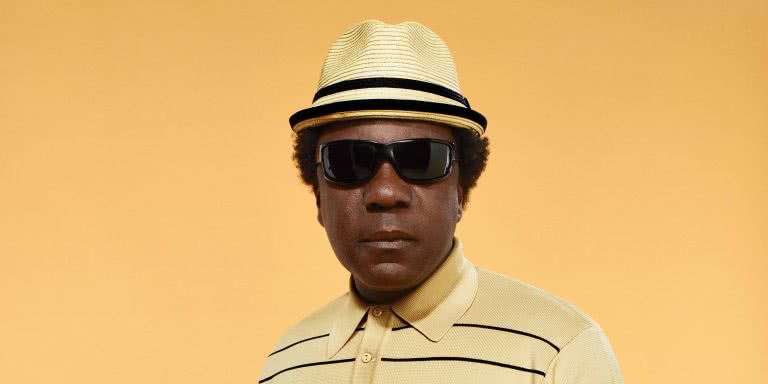In 2002, Norman Jay was welcomed into Buckingham Palace by the Queen, who awarded him an MBE for his services to music.
It was quite something for an artist who, decades earlier, was refused entry to even the grottiest of London nightclubs. The irony is, if it wasn’t for those meat-headed bouncers, Jay might never have gained his royal approval.
“I got tired of being knocked back by the racist door policies in London nightclubs,” the softly spoken 59-year-old DJ recalls. “You’d hear them playing black music, yet they don’t let you in. Necessity is the mother of invention. So you do your own.”
Born to music-loving West Indian immigrant parents in Notting Hill, Jay was the architect of the UK capital’s warehouse party scene of the 1980s. While the nightclubs segregated punters, Jay’s events brought people together.
“We became bigger than the clubs,” he says. “Our parties, they were new, they were rough, they were raw, exciting, edgy. We didn’t do it for money, we did it for the love of doing it and the love of music and friends. It was counterculture. All kids would come. They unified the style trends and the races.”
Even the police would come, if only to pull the plug and shut things down. It wouldn’t be the last time Jay performed on the wrong side of the law. He was a founding member of London’s Kiss FM, which at that time was a pirate station, underground and unlicensed. Its production happened on the run.
“We kept moving,” he says. “As pirates do in those days, you just kept moving studio every few weeks. The Home Office would get a fix on the signal. If you stayed you got shut down, so you just kept moving. A rolling stone.”
Like the warehouse parties, Kiss FM was born out of necessity. “It needed to be done,” says Jay. “At that time there were no black radio presenters on anything, so we started our own station essentially.”
And like the warehouse parties, Kiss FM brought people together. Its popularity couldn’t be proven, but was palpable. “Obviously not being a legal station you’ve got no way of measuring the amount of people who are listening, and who is listening one can only guess. But we knew we were affecting things because all the emerging style press – The Face, i-D magazine, they were all new at the time and they’d often give us support by giving us pages and ads and citing us. All the fanzines going round London at that time, Kiss FM was all over them. All the trendy spots – Camden Market, Brixton Market, everywhere you went, the cooler people had Kiss on. You could tell.”
When something becomes too mainstream, it’s time for Jay to move on. As soon as the warehouse scene morphed into licensed raves and promoters begun to “monetise it”, he’d started on the next thing. He made his unofficial retirement from the increasingly gentrified Notting Hill Carnival three years ago. When Kiss FM went legal in 1990, within a year Jay had left.
“I did what I set out to do,” he says. “Everything good that starts off illegal becomes legal if it’s any good in some shape or form. Everything’s about evolution and mutation. Early adopters are on it very early. By the time it circles into the mainstream the creator has already moved on and is trying to create something else. Something different. Something new.”
Today, Jay is an internationally renowned act (dubbed both “the DJs’ DJ” and “the people’s DJ”), the doyen of ‘rare groove’, and his Good Times parties pull in crowds the world over. After an illustrious career running always counter to the mainstream culture, he nevertheless had “no hesitation” in accepting his MBE.
“I’m not establishment. That’s the thing,” he says. “I’ve tried to use it for good effect. To show you can be born in the ghetto but you don’t have to stay there. Hard work, dedication, application, a little bit of luck, and you too can be successful. It’s not just click and download.”
Jay has been coming to Australia to play shows for almost 20 years, first at Vibes On A Summer’s Day at Bondi Pavilion before taking his own brand of party all over the country. With many people feeling let down and left out by those in charge, there’s never been a more prescient time for his visit.
“Despite the negative politics, people still want to come together and celebrate. The party continues,” he says.
It’s Jay’s role, as it always has been, to bring people together in the face of the establishment’s efforts to divide.
“The essential rules remain. You’ve still got to put on an event that draws people to celebrate the things they have in common, rather than rowing about the things that they perceive to be different. And you just provide the soundtrack for that situation – that’s what I do.
“I’m an international minstrel, going from funky castle to funky castle.”
Norman Jay playsThe Island Live: Official Afterparty, with Simon Caldwell and Stephen Ferris, atOxford Art Factory on Friday February 10.


































